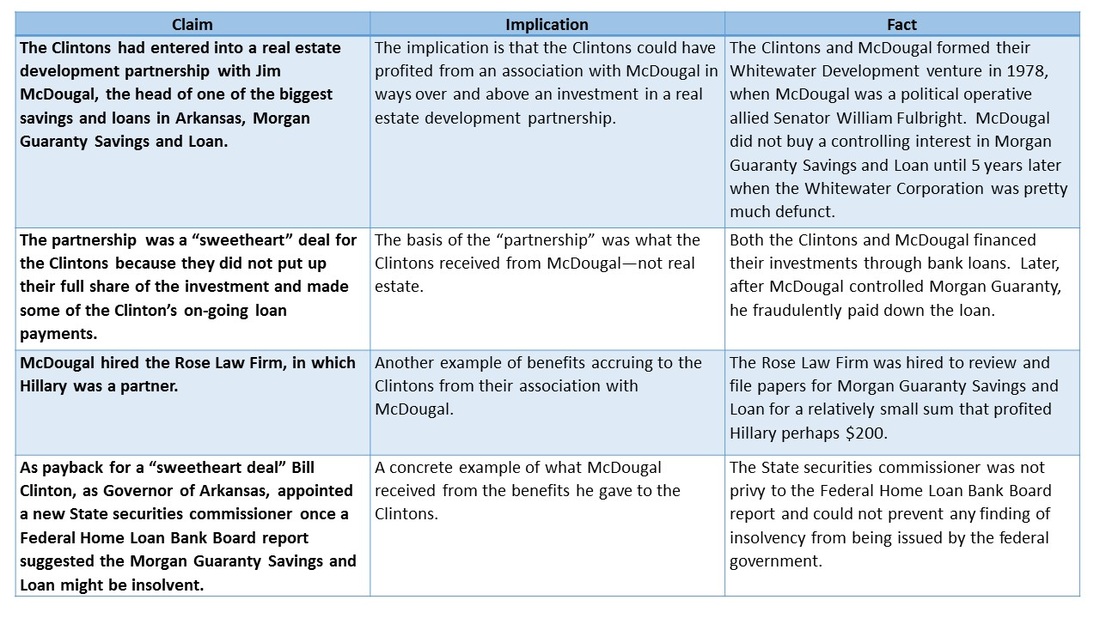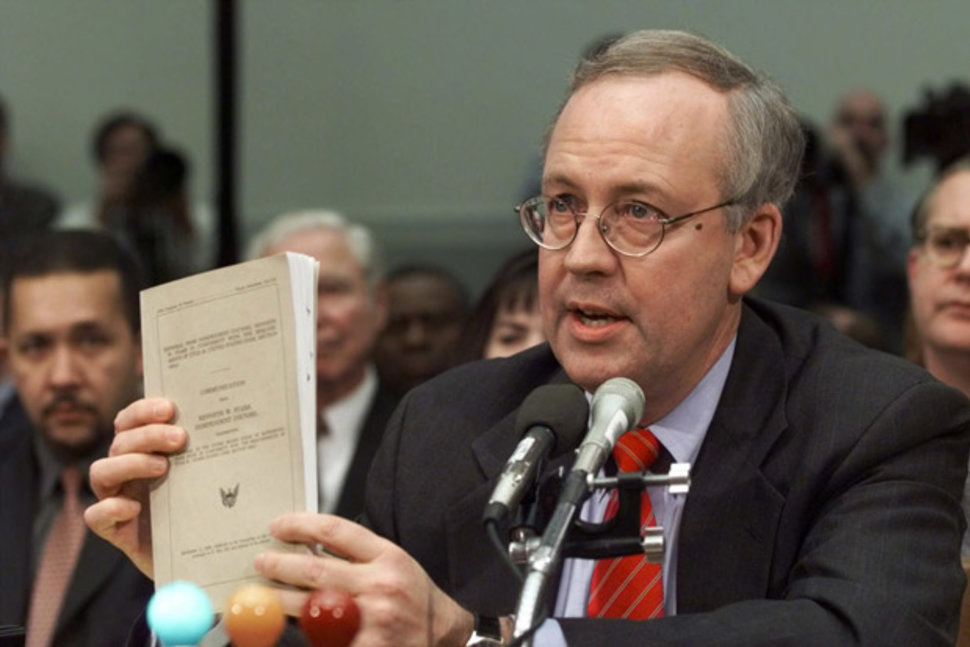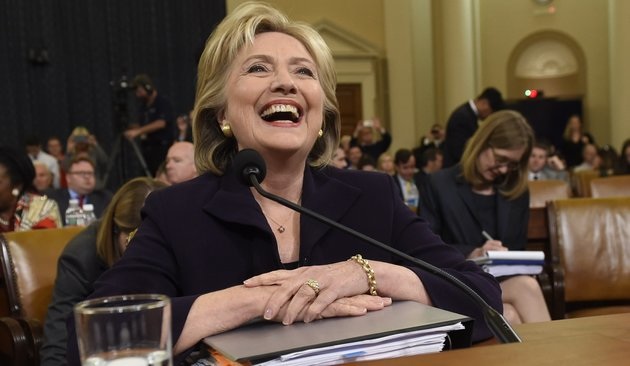| Hillary Clinton failed in her bid for the Presidency, in part, because she is one of the most hated and distrusted politicians to ever run for the office. While the focus of this hatred lies in the Republican Party, many Democrats also have negative feelings toward Hillary. Explanations for why Hillary is so reviled abound, but can be put into three broad interdependent clusters: individual, cultural, and political. Appearance or Approachability From the start of her marriage to Bill, Hillary’s appearance or approachability was judged as too formal, too casual, or inappropriate in some other way. In part, this assessment of Hillary was the result of her incongruity with Arkansas. Arkansans considered her appearance (i.e., big eye glasses and headbands) and behavior (i.e., working in a law firm and keeping her maiden name) to be too reflective of Eastern styles and values. Besides Hillary’s demeanor, the Clintons also made it clear that their marriage was a full partnership in which Hillary was as much a professional as Bill. Nonetheless, some women have justified judging her appearance because they were women. Some men, on the other hand, claimed they were justified in judging Hillary’s demeanor because it showed the quality of her professional decision-making. |
Disquiet over Social Change
The second batch of attacks on Hillary arose from disquiet over social change and Hillary Clinton’s association with that change. The cultural issues that became associated with Hillary include feminism and sexism, racial and political realignment, and the toleration of moral permissiveness. While the seeds of these issues had been planted in previous decades, politicians like the Clintons saw them come to full fruition in the nineties.
The Feminine Mystique, credited with sparking the modern feminist movement, was written in 1963, although the issues associated with the feminist movement, such as is marriage and the family obsolete, what should the “proper” role of women would be, should wives work, or want to work, outside of the home, remain important issues today. Hillary retained her last name when she married Bill. Hillary’s public pronouncement that she could have stayed home and baked cookies and had teas, but that she decided to fulfill her profession which she entered before her husband was in public life was seen as denigrating the choice made by wives who did stay at home. Further, when Hillary defended Bill, who was accused of having a long standing affair, she claimed that her defense of him was not like some little woman standing by her man like Tammy Wynette, her image as a cold and calculating career woman was fixed in the public mind. Together these statements perfectly captured the ambiguity of these issues in politics and helped galvanize the misogyny already present against Hillary. Further, any unpleasantness raised by the issues was also directed toward Hillary.
The Voting Rights Act of 1965 gave African-Americans in the South the right to vote for the first time since Reconstruction and initiated seismic changes in politics and the political parties that are still on-going. One change was the need for white Democratic politicians in the South to capture the black vote without alienating the white working-class vote. In addition, the transformative election of Ronald Reagan and the upsurge of conservatism seemed to disadvantage Democrats who continued to support the programs and ethos of the progressive New Deal. The Clintons, a self-proclaimed “political team” scrambled to avoid any missteps as they threaded their way through this maze of conflicting expectations. Nonetheless, some working-class whites, African-Americans, and most Democratic progressives felt the Clintons were guilty of some degree of unfaithfulness.
Some people characterized many of the changes in sexual, reproductive, and patriotic behavior as the toleration of moral permissiveness. The Clintons were affected by each of these areas and thus, provoked the ire of many people. The movie that became the icon for changing sexual mores, Bob, Carol, Ted, and Alice was released in 1969 and depicted married couples who had engaged in adultery and contemplating swapping partners. Bill Clinton was widely reputed to be involved in a number of extramarital affairs and although no such rumors swirled around Hillary, her marriage to Bill tainted her as a participant in the new sexual revolution. Abortion rights were extended to women by Roe v. Wade in 1973, but abortion has remained a contentious issue since then. The Clintons have been identified as pro-abortion rights advocates despite how they have attempted to cast it (abortions should be safe, legal, and rare). Also, the distress that many young men felt about the possibility of being drafted for the Vietnam War ended in 1975, although many people harbored strong feelings about those young men who avoided service. While many eligible young men avoided service in the Vietnam War, Bill Clinton did so by attempting to shift responsibility for avoiding service from himself to the draft board. Hillary was not a party to Bill’s draft status, but as his wife she was, perhaps unfairly, tainted with Bill’s actions.
Political Blowback from Opponents
The third batch of attacks on Hillary stem from blowback initiated by political opponents. The new twist in most of these attacks is that they relied on a technique of continuing investigations to derail the Clintons’ political agenda. The method of continuing investigations, as applied to the Clintons, involves three parts. First, an investigation is initiated by a government entity, often spurred on by allegations of wrong doing levelled by political opponents or interested observers. Thus, unlike most authentic investigations which begin with a likely crime, the purpose of the politically motivated investigation is to find an act of wrongdoing. Second, these investigations are not concentrated solely on ensuring accountability as an outcome. Instead, a major emphasis of these investigations is to ensure their continuation to shift focus from a political agenda to answering investigatory questions; act as a beacon for fundraising; and to tarnish the reputation of the investigatory targets and their supporters. Third, these false investigations are designed to feed on themselves and keep expanding. Eventually, some act of wrongdoing, unrelated to the original allegations, may be found or precipitated by the investigation itself and another investigation is fueled. This is method of continuing investigation is probably what Bill Clinton had in mind when he bemoaned the “politics of personal destruction,” not simply personal attacks.
Whitewater, a failed land development project in Arkansas, was the seminal event promoted by Clinton opponents as proof of the couple’s corruption to thwart Bill’s run for the Presidency in 1982. Although the effort failed in its primary objective of denying Bill Clinton the Presidency, Clinton opponents adopted Whitewater corruption charges as an attack against Hillary’s efforts to reform the health care system in the U.S. by establishing a universal healthcare system. Hillary’s 2016 decision to run for the Presidency of the U.S. created another explosion of political opposition that led to attacks designed to stop her from becoming President.
The original sin of Whitewater was perpetrated against the Clintons by members of the Main Stream Media (MSM) intent on uncovering wrongdoing and by extreme Republicans who wanted to stop the Clintons from implementing their agenda. The first act of the MSM’s assault on the Clintons occurred when two of Bill Clinton’s political enemies gave a New York Times reporter, Jeff Gerth, the lead for a story unfairly alleging corruption by the Clintons. The second act of the assault on the Clintons involved a Republican partisan seeking the re-election George H.W. Bush for President or at least, stopping Bill Clinton from being elected President.
The New York Times story was filled with errors and misleading statements designed to prove guilt rather than an examination of the facts. Table 1 gives some selected examples of how Gerth constructed his case against the Clintons. Even easily available facts, such as when Clinton’s partner James McDougal acquired Morgan Guaranty, were wrong. In addition, Gerth ignored an 11 page memo provided by the Arkansas securities commissioner, Beverly Bassett Schaffer which corrected some of the errors that made it into the New York Times. Nonetheless, the importance of the New York Times story is that it set the tone for future stories in the MSM and helped to influence the launch of future investigations.
As a way of derailing the Clinton’s efforts to bring about health care reform, a Whitewater investigation was launched with the naming of a Special Prosecutor, well-respected former prosecutor, Robert Fiske. Fiske issued a report that exonerated the Clintons of any wrong doing. Nonetheless, the Republican response was to call for another investigation; Kenneth Starr, a lawyer without any prosecutorial experience, but impeccable right wing credentials, was appointed the special prosecutor.
Besides the MSM’s template for Whitewater which purported to show corruption by the Clintons, the existence of a “vast right wing conspiracy” also contrived to construct a narrative of corruption involving the Clintons. Right wing operatives bribed witnesses and arranged evidence to support the corruption narrative. The Clinton corruption narrative of Whitewater was a perfect fit for undermining the Clintons’ health care reform. Unlike Bill Clinton’s sexual adventures, Whitewater also targeted Hillary because of her pivotal role in planning the health reform. In addition, some voters, already suspicious of Hillary because of her cultural positions, were especially susceptible to a corruption narrative.
At the end of the Clinton Administration, Hillary ran for and was elected as a Senator from New York. After two successful terms, Hillary left the Senate to serve as President Obama’s Secretary of State in his first term. After her service as Secretary of State, 69 percent approved of job she had done and was the leading contender for the Democratic nomination for the Presidency. Nonetheless, in the last days of her term as Secretary, a consulate was overrun by terrorists in Benghazi, Libya and the Ambassador and three other Americans killed.
Republicans, said they were outraged by the deaths and began a series of investigations to identify the wrongdoing that had caused the loss of life. A member of the Republican House Leadership team, Kevin McCarthy, admitted in an interview the purpose of the 9 investigations.
Everybody thought Hillary Clinton was unbeatable, right? But we put together a Benghazi special committee, a select committee. What are her numbers today? Her numbers are dropping. Why? Because she's untrustable. But no one would have known any of that had happened, had we not fought.
Because Secretary Clinton was using a private email server when Benghazi occurred, the House Committee on Oversight and Government Reform claimed it needed to investigate her email usage while Secretary of State. Hillary’s use of a private server was against State Department policy but, it was not against the law and thus, did not present a predicate for a full-scale witch hunt. To increase the gravity of her Hillary’s transgression, Republicans raised concerns that Hillary had sent and received classified emails on her private server because she had no other way of transmitting classified information. This concern was disingenuous because Hillary, like all State Department officials, had access to a classified email system and was prohibited from using any other system for classified information; there was no indication that she had used her personal system for classified information.
In fact, there was a reason for using an unauthorized private system other than the venal character of the Secretary: the deplorable level of computer capability at the State Department. Both Secretary Clinton and before her, Secretary of State Colin Powell, used private email systems to sidestep some of these technological inconveniences. Also, Secretary Clinton, technologically challenged, was reluctant to invest the time she needed to learn new email systems. Nonetheless, despite the absence of any illegal act, an investigation of Hillary’s official and personal emails was launched.
The investigation concluded that most of the emails on her private server were not classified when they were sent. Hillary did send three emails that contained some classified information at the time she sent them, although she had no way of know it, because they were not correctly marked as classified. Other classified emails were sent by State Department officials who, apparently, considered them innocuous enough to forgo using the State Department’s secure email system. The investigation also concluded that the State Department culture encouraged the careless treatment of classified material, but gave short shrift to how the mission of diplomacy may require a looser interpretation of classified information than that usually prescribed security agencies.
These security agencies had classified all information about the U.S. program using drones to assassinate terrorists even though foreign diplomats asked questions about this program. One of the classification breeches found on Hillary’s private server involved a discussion about how U.S. diplomats should respond to questions about the news report. One of the breeches for which Hillary was faulted thus involved the discussion of how to answer inquiries about a news article on drones. The topic of how the US should use drones was one that news agencies across the country regularly pursued without security clearance.
Much of the distrust and dislike that voters feel toward the Clintons was a direct result of Whitewater and continuing investigations. While these investigations did not find one iota of wrong doing on Hillary’s part, they allowed corrupt operatives of the far right to spew lies and distortions about Hillary that persisted over time. After Bill left office and Hillary was elected to the Senate and eventually became Secretary of State, her approval ratings climbed to over 60 percent. Nonetheless, although the seeds of distrust and dislike had been planted by the far right, the corrupt source of the lies and distortions was forgotten. Instead, the lies and distortions had lain fallow until resurrected by new investigations.



